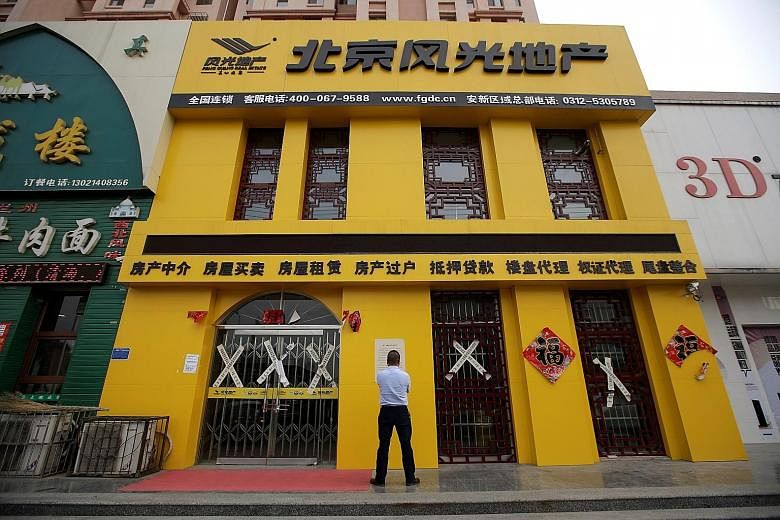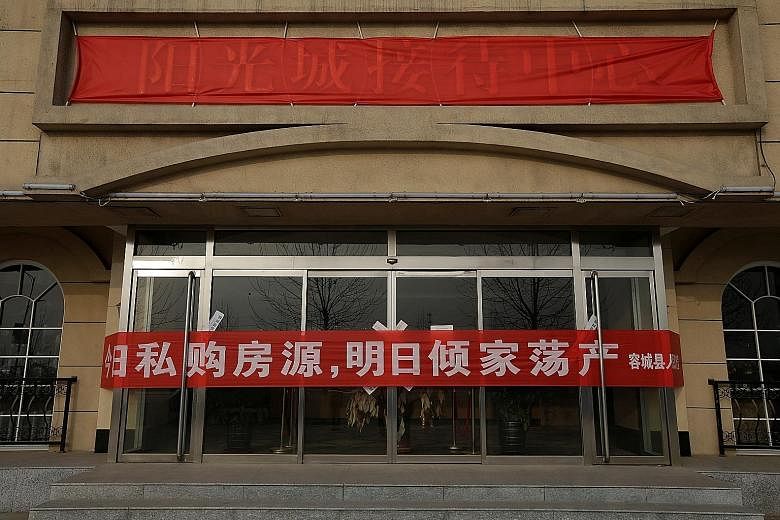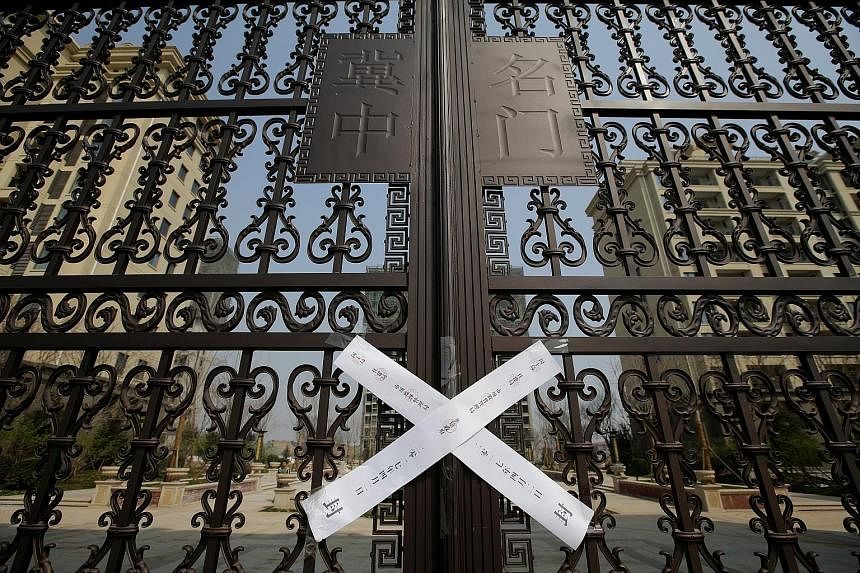XIONGAN (Hebei) • Business owner Hu Weibing weeps at the prospect of losing everything, including his home, after China's surprise announcement to transform a rural area outside Beijing into a modern metropolis nearly three times the size of New York City.
His family-run clothing factory in the northern province of Hebei could close at the expense of a new special economic zone similar to those in Shanghai and Shenzhen.
The planned Xiongan New Area measures 2,000 sq km and has less than 1 per cent of Beijing's economic output, but the April 1 announcement sparked a real estate speculation frenzy as out-of-town home buyers descended on the previously unknown area.
"It's certainly good for Hebei and the regional economy, but it's a disaster for small and mid-sized business like ours," said Mr Hu, staring at the bare concrete walls of the four-storey dream home he began building last year but will never be able to finish.
Though the authorities have not yet told him what is next, he is expecting things to progress in the fashion that has become typical for government mega-projects: forced relocation and modest monetary compensation.
The changes will scatter his 40 local employees, each painstakingly trained for two years to produce the winter jackets that Mr Hu's Yuhua Clothing Manufacturing sells to clients in Moscow.
And land prices elsewhere are guaranteed to be out of his reach.
"To build another factory or another villa like ours will be impossible. It's a terrible shame," he said quietly, unable to stop tears sliding down his face after devoting decades of his life to the business.
There are 19 national-level "New Areas" scattered across China, 13 of them established since 2014.
But Xiongan stands out: President Xi Jinping personally designated its location during a February trip to the fields just outside Mr Hu's village of Dawang, according to Xinhua news agency.
After the announcement, housing prices doubled in a single day, as speculators queued outside real estate offices, clogging the streets with luxury vehicles as they battled to snap up properties for cash.
Shocked, the local authorities quickly imposed bans on home sales and ordered brokers to close up shop. By mid-week, offices were closed, their metal grates pulled down and with crosses of white tape over them for good measure.
But individuals with properties for sale were still willing to approach potential buyers with prices that had gone up 300 per cent in three days, they told AFP.
An investor surnamed Wang had arrived to check out opportunities from Beijing, 100km away, but declined an offer to buy at a rate higher than the average cost of a home in the bustling port city of Tianjin. "I could've accepted some 13,000 or 14,000 yuan (S$2,600 or S$2,800) per sq m, but 30,000 is simply too much for an investment of at least 10 years where you don't even know how things will turn out in the end," he said.
"It's crazy - they're still planting crops here! What if Old Xi steps down and they never build anything here at all?"
AGENCE FRANCE-PRESSE



